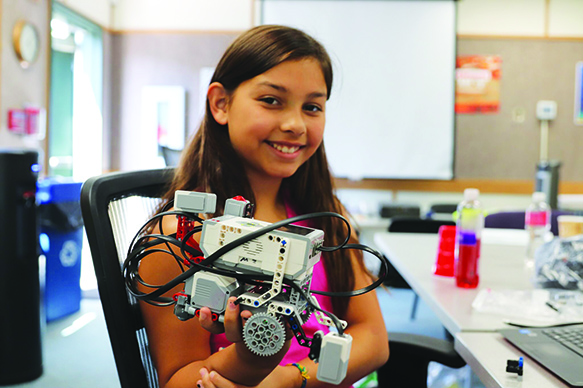
By Kalvin Valdillez, Tulalip News
“Technology is the key to the future,” said Matthew Collier, Certified LEGO Robotics Instructor and Co-founder of Robotic.How.com. “If you look at your hand, you’re the only one with that hand, those fingerprints. You were born to leave your fingerprint somewhere. And if we can teach you, help you find what you’re supposed to put your hand on and leave your print, then you’re going to be more motivated, you’re going to have a purpose in life. We can teach these kids a purpose in STEM, it’s important because that’s the future.”
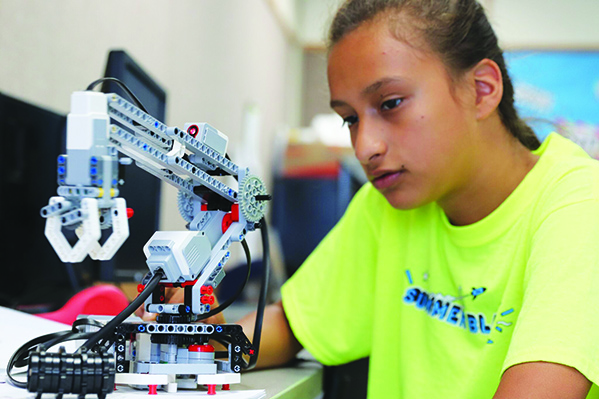
For the fourth year in a row, Matthew and his wife Kathy brought a week’s worth of Science, Technology, Engineering and Math fun to the summer school students of the Tulalip Tutoring and Homework Support program. Known by the local kids as ‘robot camp’, the Colliers teach students going into grades kindergarten through twelfth, basic computer coding, programming and design by building robots with LEGOS.
The students split into three groups based on which grade they will be entering at the beginning of the school year; kindergarten through second grade; third through fifth grade; and sixth through twelfth grade.
“Kindergarten through second graders are doing science experiments using the LEGO WeDo robots,” explains Kathy. “They are doing simple coding; they can actually explain to you the function of each LEGO piece. The third through fifth graders are using the EV3 Robots, which is actually being used by first year college students at MIT. And the sixth through twelfth grades are programing their robots to make a directional decision at each turn.”
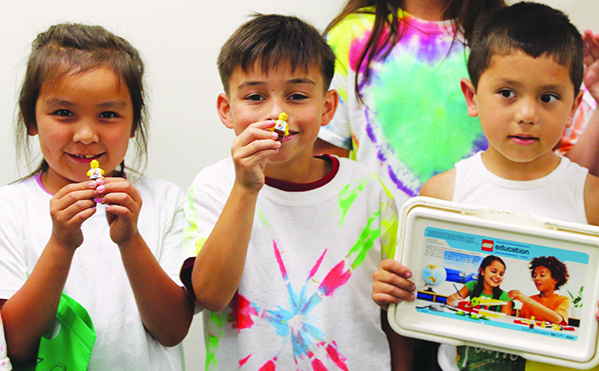
The youngest group programed a number of LEGO robots to drum, dance, and roar throughout the week, building alligators, lions, monkeys and airplanes. The third through fifth grade students worked on an EV3 rolling robot during STEM week, coding it to move throughout the classroom. The older kids were challenged to create a robot that can move without wheels.
Young Catherine Velazquez focused intently on completing her challenge, continuing to work on her bot during the free time portion of the day. Catherine was onto something as she gave her bot two long LEGO pieces as legs and used trial and error until her robot was walking through an obstacle course in the classroom.
“It’s fun and pretty easy once you get into it,” Catherine proudly exclaimed. “I liked messing with it, programming it to walk and make turns. I liked making my robot move forward and backwards and it can use its sensors to detect when its centimeters away from hitting something, so I programmed it to make a turn when it gets close to anything. I’ve had lots of fun here at robotics camp.”
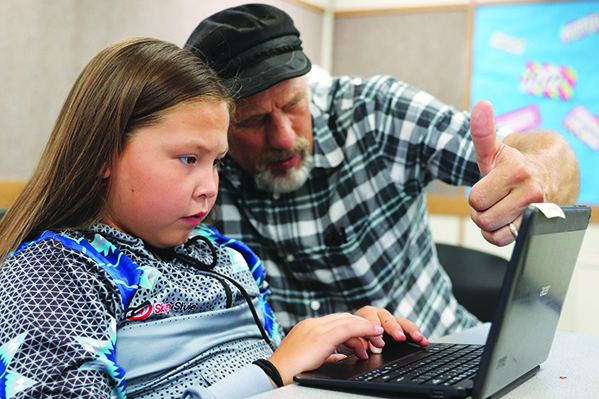
Matthew and Kathy added a new programming software for their elementary students to explore this year. The kids had a blast using Scratch, a visual program which teaches them how to use JavaScript to remix a number of online games, video clips, music and sound bites into one project.
“Today I uploaded this narwhal music video to my project and I’m listening to it,” said STEM Robotics camper, Mason Jefferson. “I’ve never done anything like this before, it’s all new to me. I’m learning a lot, how to program robots and remix projects on Scratch.”
Along with learning how to code videos and program robots, the kids also explore a variety of scientific principles by conducting a series of experiments as well as constructing telescopes and making tie-dye t-shirts. With wide smiles on full display, the kids happily soaked up knowledge from each lesson and were eager to continue learning each day.
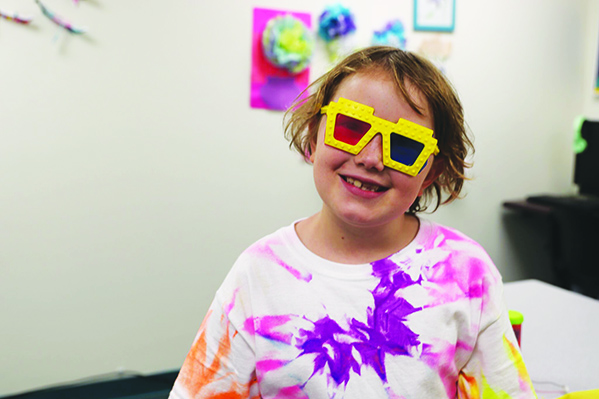
“I believe when a child is given the opportunity, support and encouragement, they will travel as far as they can go, we always tell them to reach for the stars,” expressed Margarita Huston, Tutoring and Homework Support Program Instructor. “We had two particular students who were able to reprogram their computers, so they did more with them when they were building their robots than the actual instructions required.
“We have one student who has been given a label by the schools as a troublemaker. He was one of the two to reprogram his computer. He was so focused. There was no trouble, no reacting in a negative manner; he was ready to come in and learn. In fact, he was impatient to get started every morning. He told me, ‘here I’m not dumb’.”
After four successful years teaching at Tulalip, the couple plans on expanding their program to reach an older demographic. Although the amount of participation has seen an overall increase over the years, more young kids attend the camp than high school students. Matthew explained that he understands that the high school age group has a much busier summer schedule than the little ones, but he intends to draw the older kids in by hosting a Unity camp during the summer of 2020. Unity is a licensed game engine used by amateur designers and professional software developers alike to build video games.
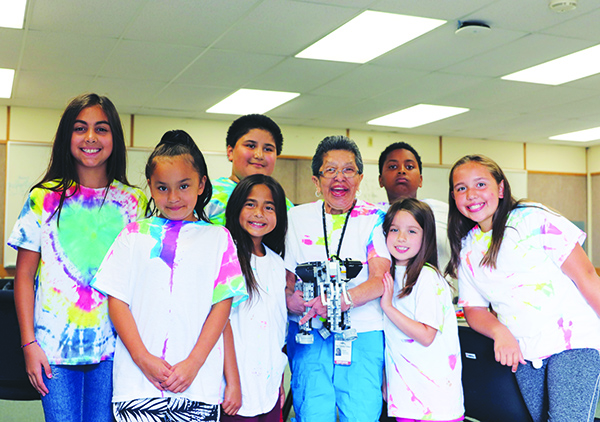
“Next year we want to come in with solid stepping-stones for these kiddos,” says Matthew. “We want to keep building that excitement. There’s a new robot kit coming out so we’re going to be upgrading all the different robots we’re working with. We’re also reaching out to the older kids, incorporating more tech and design by teaching them the Unity program. Unity is what a lot of the big games are made with. As educators, we can get it and teach the kids how to build their own games. You can make hundreds of thousands of dollars a year if you know how to program in unity.
“I guarantee in the next twenty, thirty years there will be autonomous cars everywhere because they’re safer,” Matthew continued. “That is going to affect everybody, no matter where you live or what country you’re in, it’s going to change the face of communities everywhere. We need these kids to have that information embedded in their DNA or else they’re going to be lost. We want to plant a bunch of stuff in front of them and say, look what you can do.”
Margarita stated that because of STEM Robotics Week’s popularity and success, the Tutoring and Homework Support Program looks forward to a ‘bright’ future with Colliers.
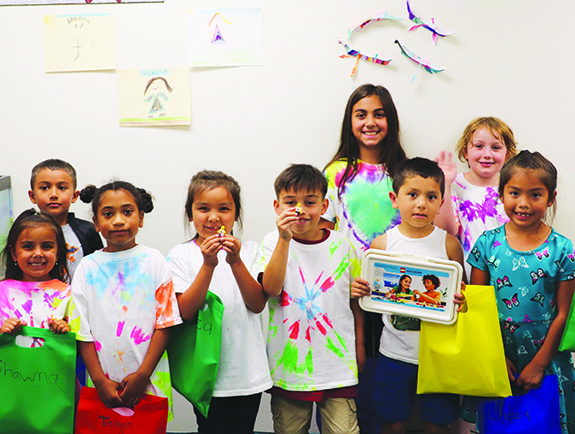
After saying goodbye to all her summer school friends and making sure to hug all of the instructors, STEM student, Tashina Cortez, fondly shared what she learned after attending her fourth robotics camp with the summer school.
“At robotics camp we learn how to program and build robots,” she explained. “I built a robot that could move, dance, do the moonwalk and speak. It was really cool making it speak; it can also do mazes and turns. I learned that people can make robots that can help people with disabilities. When I’m older, I might become an engineer and maybe invent something that will help people with their disabilities.”
For additional details please contact the Tulalip Tutoring and Homework Support Program at (360) 716-4646.